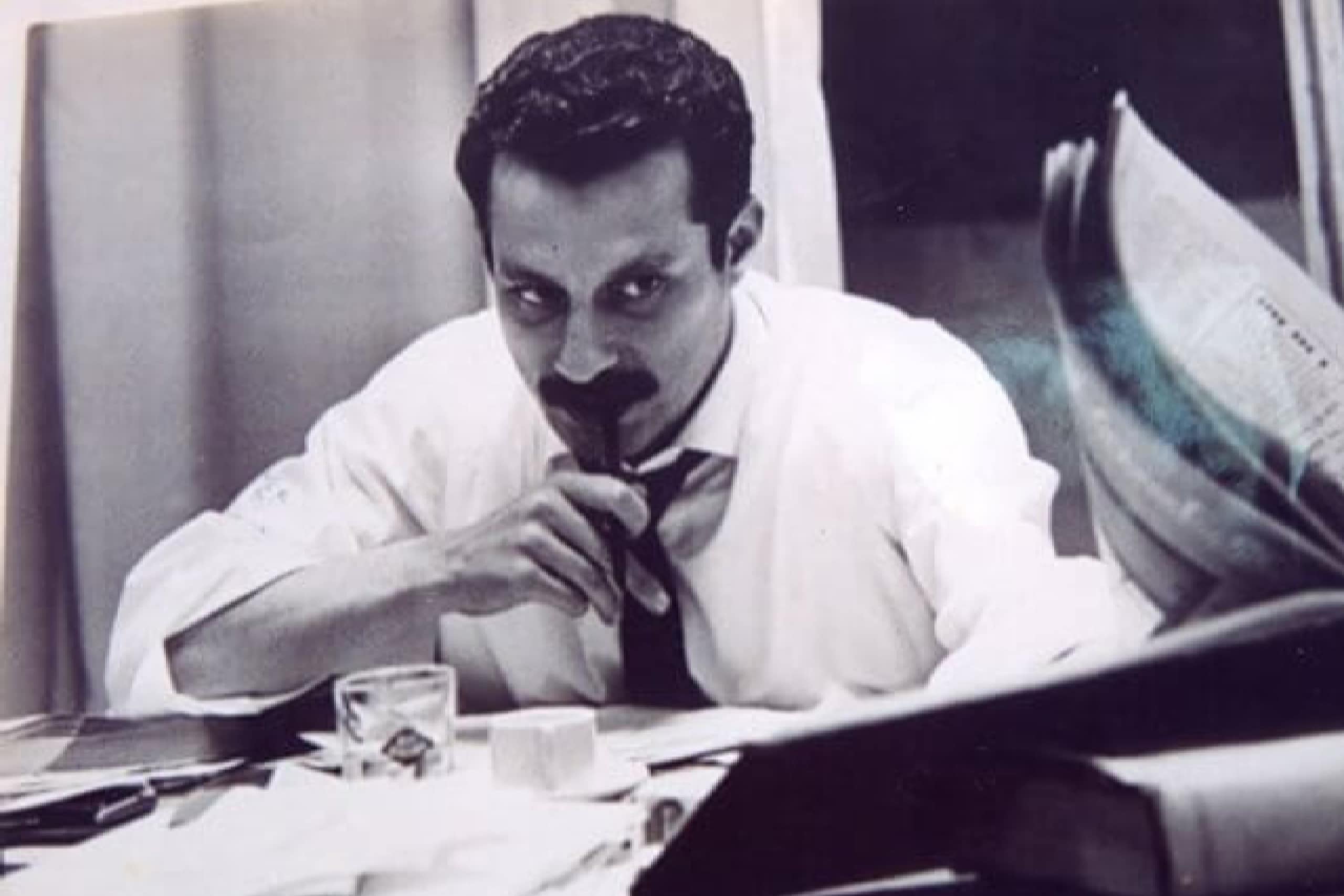
Palestinians are an ethnonational group made up of people who have roots in the region that is now considered Israel, the West Bank, and Gaza. Today, the term “Palestinians” largely refers to the culturally and linguistically Arab people from the region. While there are countless influential Palestinian people in history, we will choose to focus on 5 of the most influential Palestinian figures from an array of different backgrounds, including politics, literature, academia, and activism.
Yasser Arafat (24 August 1929 – 11 November 2004)
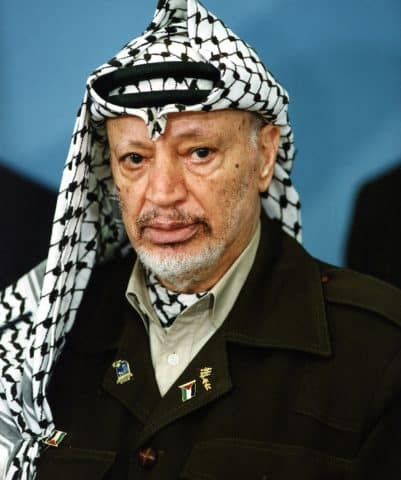
Yasser Arafat is best known as the first leader of the Palestinian people—serving as Chairman of the Palestine Liberation Organization (PLO) from 1969 to 2004, and President of the Palestinian National Authority (PNA or PA) from 1994 to 2004. He was ideologically an Arab nationalist and formed the Fatah political party, which he led from 1959 until his death in 2004. Over the course of these years, Palestine’s relationship with Israel was tumultuous, with frequent clashes occurring between the two powers. During his tenure in office, Arafat went from a position of supporting open conflict with Israelis to a position of negotiating for peace. He was even awarded the Nobel Peace Prize alongside Yitzhak Rabin and Shimon Peres for his efforts during the Oslo Era. Because of the changes in his political philosophy and policies over the years, Arafat remains a controversial figure.
Palestinians largely regard Arafat as a heroic freedom fighter who advocated for the Palestinian cause and fought against the unjust Israeli occupation of Palestine and its people. On the other hand, Israelis largely view Arafat as a shameless terrorist, while other people denounce him for being too corrupt or too submissive to Israeli government interests. Despite these conflicting views, Yasser Arafat remains one of the most important and influential figures in Palestinian history. For more information about Arafat, take a trip to his former compound in Ramallah, which now hosts an informative museum, his tomb, and an art gallery.
Edward Said (1 November 1935 – 25 September 2003)
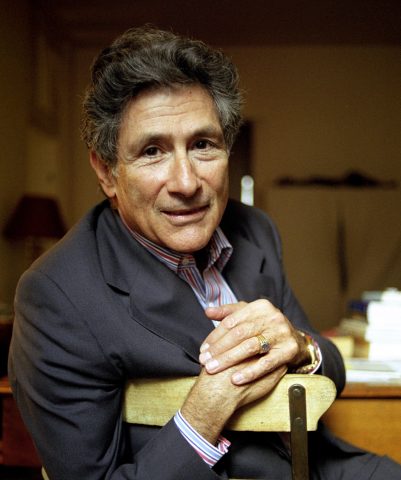
Edward Said was a Palestinian academic, political activist, public intellectual, and literary critic who examined literature in light of social and cultural politics. He was an outspoken proponent of the political rights of the Palestinian people and the creation of an independent Palestinian state. Being a Palestinian American, Said helped to illuminate the gaps in cultural and political understanding between the Western and Eastern worlds—specifically in relation to the Israeli-Palestinian conflict. Said is also known for his cultural criticism, including his critique of how the Western world perceives the Orient—as captured in his 1978 book “Orientalism,” which transformed academic discourse, Middle-Eastern studies, and how academics examine, describe, and define cultures being studied.
Furthermore, Edward Said was a public intellectual who acted politically to counter stereotypical misrepresentations of Arab culture used by Western news media to explain the Arab-Israeli war, the Middle East, and the Israeli-Palestinian conflict. Over the course of his life, Said earned many honors, memberships, and postings to prestigious organizations worldwide. Additionally, he was awarded over twenty honorary university degrees for his contributions to academia and literary criticism.
Mahmoud Darwish (13 March 1941 – 9 August 2008)
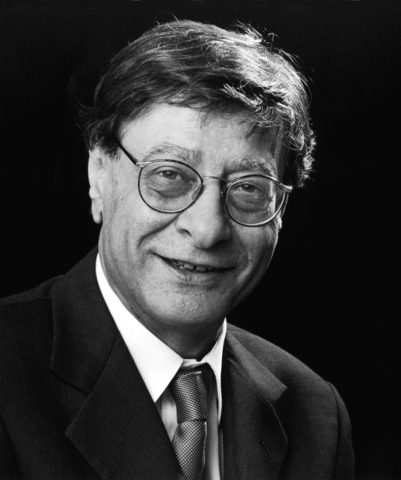
Mahmoud Darwish is best known for his role as a Palestinian poet and author and is regarded as the national poet of Palestine—winning countless awards for his poetic works. Over the course of his life, Darwish published over 30 volumes of poetry and 8 books of prose, and also served as the editor for several literary publications in Israel. Some of the reoccurring themes in his works are the concept of homeland and the Palestinian struggle for freedom. He is widely perceived as a Palestinian symbol and spokesperson for the Arab opposition to Israel, and many consider his works and life as a reflection of the tradition of the political poet in Islam—a man of action whose action is poetry. Mahmoud Darwish leaves behind an important literary, cultural, and intellectual legacy.
Leila Khaled (9 April 1944 – Present)
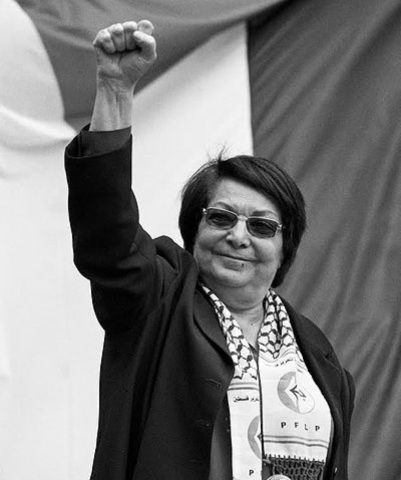
Leila Khaled is best known for being a member of the Popular Front for the Liberation of Palestine (PFLP), hijacking planes, and partaking in activism for the Palestinian cause, which made her an era-defining leftist icon of Palestinian liberation as widespread as Che Guevara. This status was strengthened by the fact that she was a female activist in a largely male resistance movement. To better understand the importance of Khaled as a figure, one must understand the historical context of her actions. The Popular Front for the Liberation of Palestine was formed after the Six Day War of 1967, in which the combined armies of Egypt, Jordan, and Syria were defeated by Israel—humiliating the Arab world and allowing Israel to capture the remaining Palestinian territories west of the Jordan River and north of the Sinai. This meant that Palestinians in the West Bank and Gaza—including the thousands of refugees who had been under constant occupation from the founding of the State of Israel in 1948—were now under Israeli military occupation.
Despite this, international attention and focus on the Palestinian struggle was minimal. In order to draw attention to the struggle, Khaled and a team of PFLP members hijacked planes out of desperation. The first time was in 1969, when she became the first woman in history to hijack an airplane. Khaled allowed passengers to disembark the plane—following instructions not to threaten passengers or civilians on the flight. There were no injuries or fatalities, but the aircraft was significantly damaged. In 1970, Khaled went at it again—working with a team to divert several planes to Jordan, and evacuating them before blowing them up. One injury was reported and one hijacker was killed. Needless to say, Khaled is a controversial figure. She is viewed by many as an inspiring freedom fighter who was struggling to liberate her people by drawing attention to their cause. Many others view her as a terrorist. Furthermore, some blame her for playing into the hands of Israelis and strengthening Western perceptions and stereotypes that link Palestinians to terrorism—obscuring the everyday struggle and resistance of ordinary people.
Ghassen Kanafani (8 April 1936 – 8 July 1972)
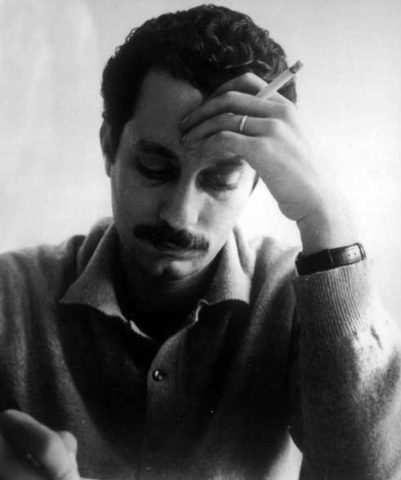
Ghassen Kanafani was a Palestinian author and a leading member of the Popular Front for the Liberation of Palestine (PFLP). During the 1948 war, Kanafani and his family were forced into exile and eventually lived in Damascus, Syria, where Kanafani received a United Nations Relief and Works Agency teaching certificate in 1952. While working with Palestinian refugees in camps, Kanafani began writing short stories. He published his first novel, “Men in the Sun,” in 1962 and wrote many more novels and scholarly works of literature and politics—winning many awards for his works. One of his largest held beliefs was that the class struggle within Palestinian and Arab society was intrinsically linked to both the struggle both against Zionism and the struggle to form a Palestinian state. To this day, Kanafani is considered a major literary figure in Palestine and a major modernizing influence on Arab literature.
